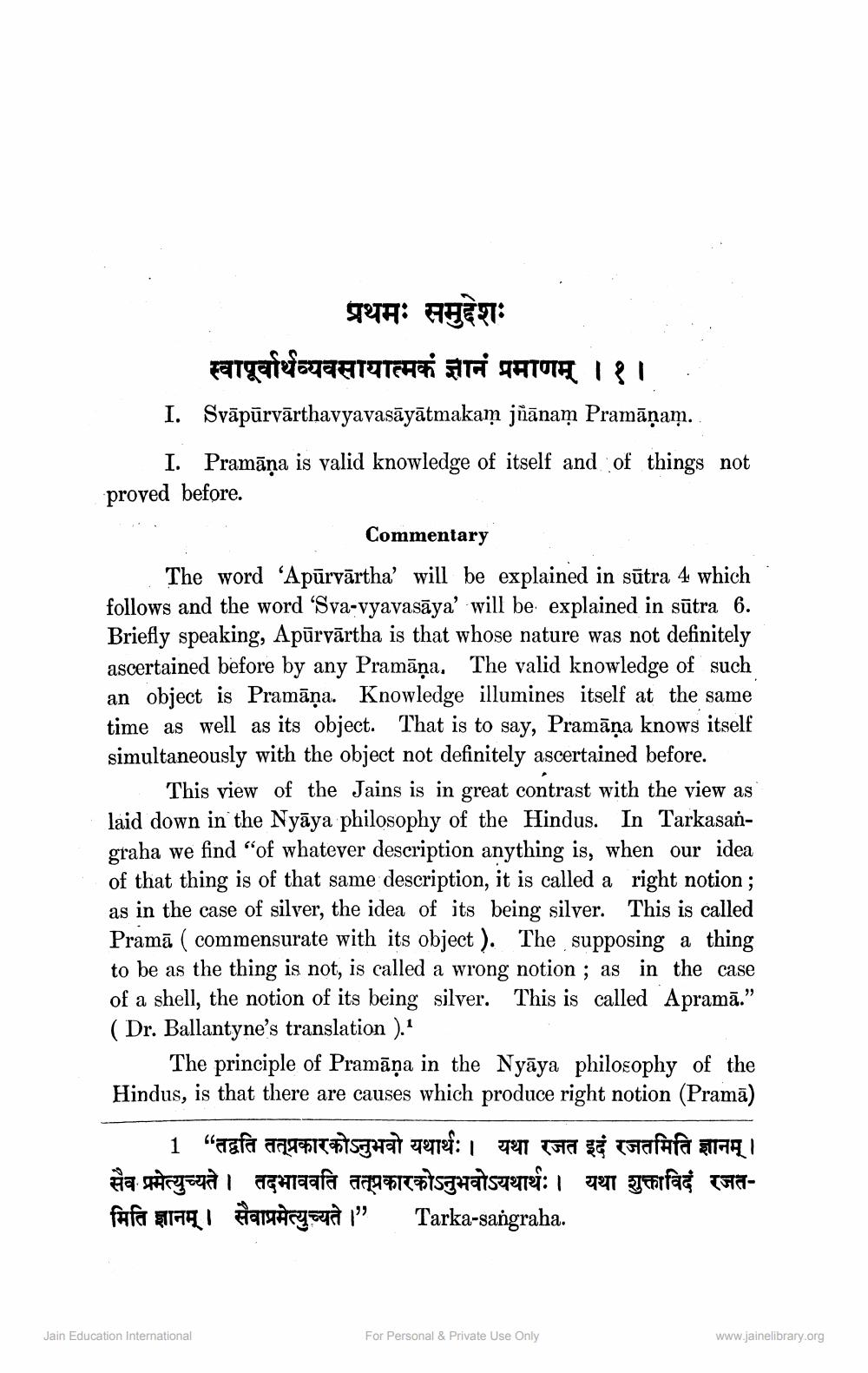________________
प्रथमः समुद्देशः स्वापूर्वार्धव्यवसायात्मकं ज्ञानं प्रमाणम् । १ ।
I. Svāpūrvārthavyavasāyātmakam jñānam Pramāņam.
I. Pramāņa is valid knowledge of itself and of things not proved before.
Commentary
The word 'Apurvārtha' will be explained in sutra 4 which follows and the word 'Sva-vyavasaya' will be explained in sūtra 6. Briefly speaking, Apurvārtha is that whose nature was not definitely ascertained before by any Pramāņa. The valid knowledge of such an object is Pramaņa. Knowledge illumines itself at the same time as well as its object. That is to say, Pramāņa knows itself simultaneously with the object not definitely ascertained before.
This view of the Jains is in great contrast with the view as laid down in the Nyaya philosophy of the Hindus. In Tarkasangraha we find "of whatever description anything is, when our idea of that thing is of that same description, it is called a right notion; as in the case of silver, the idea of its being silver. This is called Prama ( commensurate with its object ). The supposing a thing to be as the thing is not, is called a wrong notion; as in the case of a shell, the notion of its being silver. This is called Apramā." (Dr. Ballantyne's translation).1
The principle of Pramāņa in the Nyaya philosophy of the Hindus, is that there are causes which produce right notion (Pramā)
1 " तद्वति तत्प्रकारको ऽनुभवो यथार्थः । यथा रजत इदं रजतमिति ज्ञानम् । सैव प्रमेत्युच्यते । तदभाववति तत्प्रकारकोऽनुभवोऽयथार्थः । यथा शुक्ताविदं रजतमिति ज्ञानम् । सैवाप्रमेत्युच्यते ।”
Tarka-sangraha.
Jain Education International
For Personal & Private Use Only
www.jainelibrary.org




